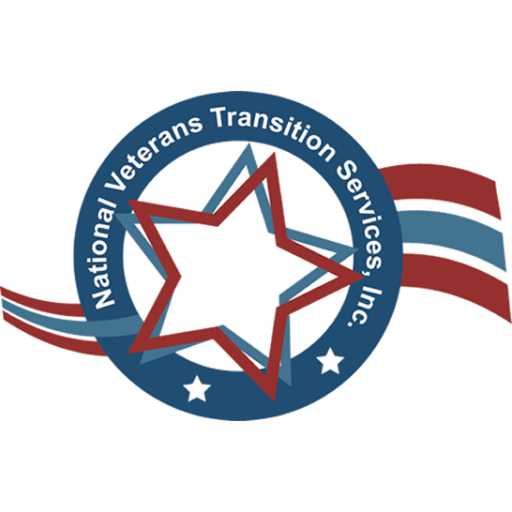
(Hampton Roads – May 23) Story by David Todd, The Flagship. Making the transition from military-to-civilian life can be a difficult challenge for many of our nation’s heroes. Topics such as employment, education, adjusting to new social environments and even living arrangements can leave some service members and their families in a situation of unfamiliarity. That’s where REBOOT workshops can help make a difference.
After successfully implementing the no-cost REBOOT workshops in San Diego, National Veteran Transition Services, Inc. (NVTSI), a non-profit organization, launched a pilot program May 6 in Hampton Roads for their 15-day, three-week transition workshops, at Tidewater Community College (TCC) Center for Military and Veterans Education in Virginia Beach. Three initial sessions are currently scheduled through October with a goal of achieving 100 percent capacities for each.
“We have a really high concentration of veterans from all the different services in this area, and that is why we saw a need to start the classes here,” said Delta L. Hinson, associate regional director for REBOOT, and a retired Navy master chief with 30 years of active duty service. “We have a huge problem with unemployed veterans in this area, and really, that is common anywhere you go.”
According to Hinson, many service members leave the armed forces without a plan for the future.
“[Service members] are going into the unknown. You feel comfortable when you are in the military — you know what your job is, you’ve been trained,” he said, “and then all of a sudden you go into something you don’t have any experience with.”
After considerable moves through their military careers, and many times living on military bases/installations, ships, submarines and tents, reintegrating into the civilian world for those separated or about to be separated from the service can be a culture shock, and may even seem like a different language to some. REBOOT workshops help service members to make a successful social and career transition by addressing their fears and “rebooting” their skills.
The workshops are kept to a maximum of 25 individuals per session and focus on three main categories: Week one — Military-to-Civilian Personal Transition, Week two —Military-to-Civilian Lifestyle Transition and Week three — Military-to-Civilian Career Transition.
In week one, participants complete self-assessments to help them understand how their mind works — for and against them — and it provides them with the tools to help manage positive and negative thoughts, unlock their potential and achieve the goals they set.
Week two focuses on living situations and community-life functions. Through discussions and exercises, participants identify the personal aspects of values, talents and strategies needed to develop a plan to achieve a meaningful purpose and vision on life.
In the final week, employment, careers and education are addressed. Participants take career assessments to help them determine what career is the best fit for them, and give them insight on job preparation, resume writing, interviewing techniques, job searching and career planning through goal setting. Additionally, mock interviews with real-world human resource professionals allow participants to try out their newly acquired skills.
Hinson said many of the REBOOT’s graduates leave the course with a greater understanding of the skills and experience they have to offer future employers.
“You have a lot more than you may think you have,” he said. “With military experience … whether it’s four years or 24 years, you have something to offer … get out there and seize the opportunity.”
To date, NVTSI has REBOOTed more than 700 service members through the workshops with a 98.2 percent success rate, which has allowed those service members to either obtain employment or enter an educational institution. Upon successful completion, graduates are provided with job matching assistance via their “Ready for Hire” initiative and job search site, access to a professional career coach if needed, on-going support through community partnerships, peer networking, monitoring for success and free refresher seminars.
The classes are not meant to be a replacement for the Navy’s Transition Goals, Plans and Success (Transition GPS) classes, but rather they are meant to give service members extra tools to ensure they have a successful transition into civilian life. NVTSI encourages individuals recently separated from service, service members within four months of anticipated separation, veterans and spouses to attend. If a service member is currently on active duty, no-cost Temporary Additional Duty (TAD) orders to the course are required by NVTSI.
“We are taking veterans … whether you are Army, Air Force, Navy, Marines, Coast Guard or reserves … it doesn’t matter,” he explained. “If you are a veteran, you are eligible!”
NVTSI is a San Diego-based 501 (c)(3) organization dedicated to assisting veterans in adjusting to civilian life and securing meaningful employment by combining evidence-based best-practice performance techniques.
The organization was established by a group of retired Navy and Marine Corps officers and workforce development professionals seeking to fill the tremendous gap in the continuum of veteran services.
Costs associated with providing the workshops are paid by contributions from local and national corporations ensuring no cost to the service member or the U.S. government.
The next workshop will begin July 15 at the Virginia Beach Campus and another workshop will be held in October (date to be determined) at the Suffolk campus To register for upcoming classes or learn more about the REBOOT Workshops, visitwww.nvtsi.org.

